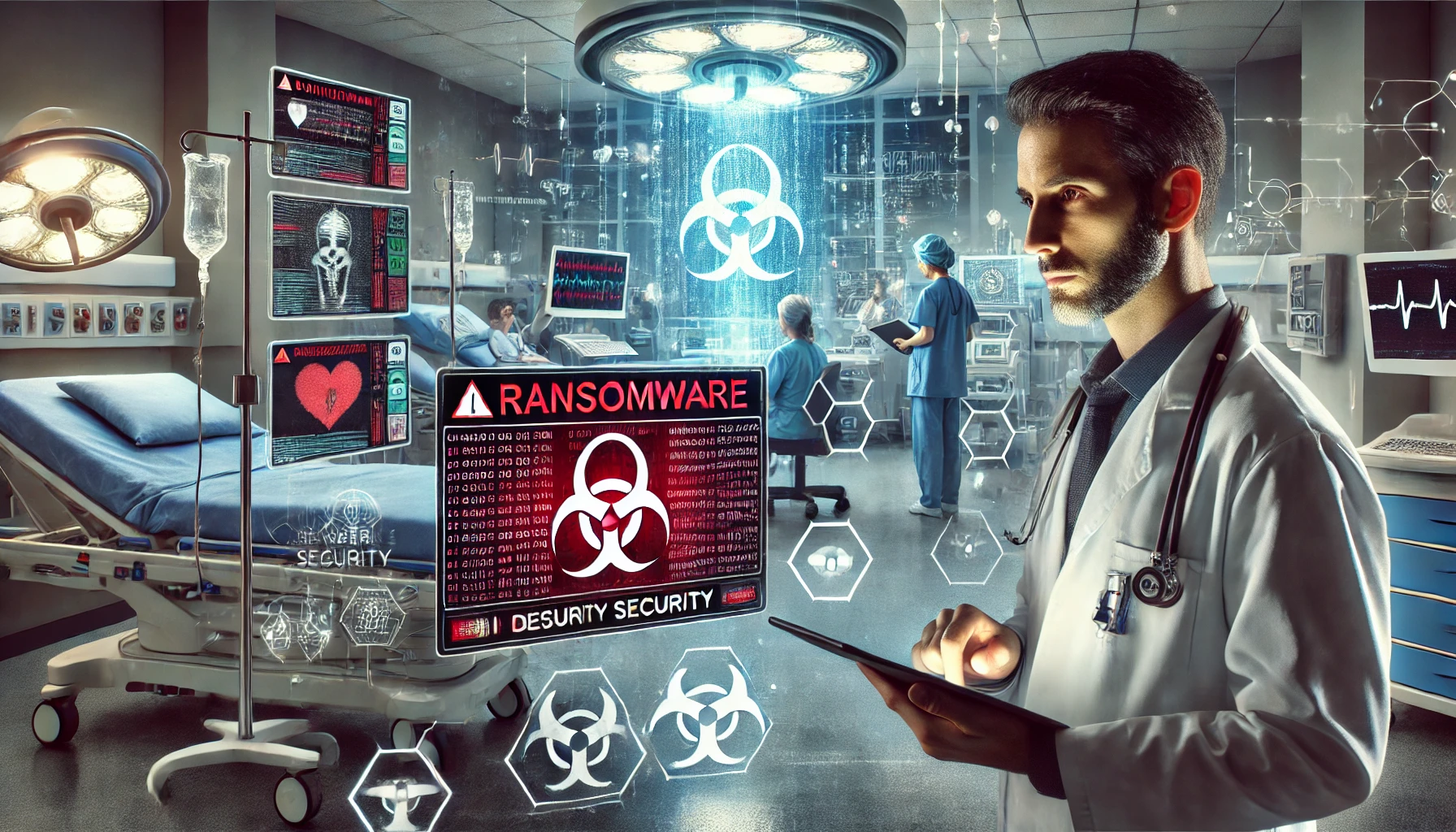Ransomware on the Rise: How Healthcare is Adapting to the Latest Threats

Ransomware and Healthcare: A Match Made in Cyber Hell
Picture this: a doctor is about to perform life-saving surgery, but instead of monitoring vital signs, they’re greeted with a screen demanding a hefty Bitcoin ransom. That’s not the future, folks. That’s the present-day reality in healthcare. Hospitals have become prime targets for ransomware attacks, where cybercriminals lock up critical patient data and demand payment to release it. While other industries have their fair share of cyber woes, healthcare hits differently—there’s nothing like a ransom note flashing while lives are literally on the line.
Why Healthcare is the Perfect Target for Ransomware
So, why do hackers love picking on hospitals? Simple: patient data is a goldmine. With everything from medical histories to insurance details stored digitally, healthcare systems are treasure troves for cybercriminals. The urgency of healthcare also means hospitals can’t afford downtime. A hospital can’t say, 'Oh sorry, we’ll have to reschedule your surgery because our systems are locked.' That pressure makes healthcare organizations more likely to pay up. And let’s be real, healthcare’s cybersecurity is often a bit behind the times, creating an ideal playground for hackers.
How Healthcare is Fighting Back: Not Just Band-Aids
While ransomware attacks are on the rise, healthcare isn’t taking this lying down. Enter next-gen technologies, like AI-driven threat detection, which helps hospitals spot unusual activity before it becomes a full-blown crisis. Hospitals are also investing in better encryption and secure cloud storage to safeguard sensitive data. And it’s not just about technology. Organizations are beefing up their cybersecurity training, teaching staff to spot phishing attempts and reminding them not to click on that 'Your prince has arrived' email. Hospitals are even collaborating with cybersecurity firms, creating a multi-layered defense system that hackers have a hard time cracking.
The Role of AI and Machine Learning: Cyber Superheroes in Scrubs
One of the key players in healthcare’s fight against ransomware is AI. Machine learning algorithms can sift through thousands of data points and flag anything suspicious, long before a human would even know something’s up. Think of it as a digital bloodhound, sniffing out anomalies in real time. AI isn’t just playing defense either—it’s predicting where attacks might come from next. If ransomware was a virus, AI is the ultimate vaccine. And yes, it’s a lot less painful than a needle!
Healthcare’s Achilles Heel: Legacy Systems and Budget Constraints
Despite the shiny new tech, healthcare is still limping along with legacy systems that are more outdated than your grandmother’s flip phone. Many hospitals run on software that was cutting-edge in the early 2000s but is now about as secure as a wet paper bag. Budget constraints add another layer of complexity. Healthcare organizations, especially public ones, often have limited funds to throw at cybersecurity. The result? A patchwork of solutions that sometimes leaves gaps for cybercriminals to exploit.
The Legal Side: Regulations, Compliance, and Consequences
The healthcare industry isn’t just battling hackers—it’s also dealing with regulatory pressures. HIPAA (Health Insurance Portability and Accountability Act) and other privacy laws mandate strict protocols for protecting patient data. When a ransomware attack happens, it’s not just the ransom payment that hurts—fines and legal consequences can pile on if data breaches are found to violate regulations. As a result, hospitals have to juggle the dual challenge of securing data while staying compliant, which can sometimes feel like performing surgery with one hand tied behind your back.
Looking to the Future: Can Healthcare Stay One Step Ahead?
As ransomware attacks evolve, healthcare must stay agile. The future will likely see more advanced AI and machine learning systems that can not only detect but also prevent ransomware attacks from ever taking root. Blockchain technology is also on the horizon, promising secure and tamper-proof ways to manage patient data. The question is: will the healthcare sector be able to adapt quickly enough to these fast-moving threats, or will it remain a vulnerable target for cybercriminals? One thing’s for sure—the fight against ransomware is far from over, and hospitals must continue to innovate if they want to protect both their data and their patients.
Conclusion: Is Healthcare Ready for the Next Big Ransomware Wave?
Ransomware is no joke, and the healthcare sector has had more than its fair share of close calls. From leveraging AI to overhauling outdated systems, hospitals are starting to beef up their defenses. But with cybercriminals always one step ahead, the real question is, can healthcare outpace the next wave of ransomware attacks? Or are we destined for a future where ransomware and healthcare are unwilling partners in cybercrime? What do you think? Is the healthcare industry doing enough to fend off these growing threats?



